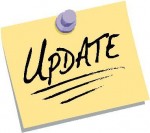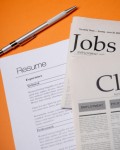Pharmacist Salary Trends – What Pharmacists Are Getting Paid the Most?

Are pharmacist salaries going down? What kind of pharmacist is getting paid the most in this current pharmacy job market?
Based on comparing pharmacist salary surveys (compiled by Mercer) taken between the spring 2010 and fall 2011 survey edition, pharmacist salaries have increased. Pharmacy managers who manage the day-to-day operations of hospital pharmacies make the most, even compared to retail pharmacy managers.
Hospital staff pharmacists experienced the smallest increase compared to the other pharmacy positions surveyed. Retail pharmacists and hospital retail/outpatient pharmacists seem to have the highest % increase in salary from the previous year, compared to pharmacists in other positions.
A few things to note when interpreting the survey results: salaries are based on 77 organizations participating in the survey and the # of organizations participating in the survey seemed to have decreased from spring 2010’s pharmacist salary survey. The # of organizations participating in the survey who reported hospital staff pharmacist salary surveys decreased in half. Keep in mind that the results were compiled in middle of the year in 2011 for the fall survey publication.
Without doing research on statistical significance and a more detailed analytical comparison from year-to-year, my observations are that the salaries are increasing.
 As far as what I’m observing in pharmacist salary trends right now, salaries appear to stay in a similar trend. My projections are that until we make ourselves more valuable (aka make more money for the pharmacy or demonstrate in a hospital setting for example that we save healthcare costs) to warrant an increase in salary, the salaries will stay similar for now.
As far as what I’m observing in pharmacist salary trends right now, salaries appear to stay in a similar trend. My projections are that until we make ourselves more valuable (aka make more money for the pharmacy or demonstrate in a hospital setting for example that we save healthcare costs) to warrant an increase in salary, the salaries will stay similar for now.
What about temp pharmacist jobs? Look out for the update on that in an article coming soon.
How do the salary trends affect you, even if you have a job? Use the information to get a raise. Make yourself valuable. It goes back to the basics of any business. The more value you provide to the business (aka pharmacy), the greater asset you will be and you may ask for a raise. Not sure what the best way is to ask for a raise, or to ask for the fairest compensation when you are looking for a new job? Stay tuned in an upcoming article on tips to ask for a raise/fair compensation and get it. You will also find out what pharmacist jobs have more negotiating power.
If you qualify for a recruiter to network on your behalf, use your recruiter to help you negotiate a fair compensation for you. Remember, it’s not all about the salary—it’s the whole package.
Comment below (you can keep it anonymous if you wish) about what you’ve seen with salaries at your workplace.
I’ve included the National Results from the 2010 Spring Edition Pharmacist Salary Survey from Mercer Human Resource Consulting. *Keep in mind that there are absolutely variations geographically & you may be compensated differently due to the depth of role that you have.
2011 Pharmacy Compensation Survey – Fall Edition
National Results
| Pos Code(s) |
Pos Title(s) |
# Orgs | # Obs | $ Hourly Base Pay Wgtd Mean | $ Annualized Base Pay Wgtd Mean* |
| 100 | Pharmacy Team Mgr | 63 | 28,953 | 61.89 | 128.7 |
| 200 | Staff Pharmacist – Retail | 18 | 57,374 | 57.08 | 118.7 |
| 205 | Staff Pharmacist – Hospital | 45 | 3,823 | 53.83 | 112.0 |
| 210 | Staff Pharmacist (Healthcare Retail/Satellite) | 12 | 381 | 54.78 | 113.9 |
| 220 | Staff Pharmacist (Mail-order/Online) | 9 | 2,141 | 53.92 | 112.2 |
| 250 | Clinical Pharmacist | 43 | 898 | 55.41 | 115.3 |
| 270 | Nuclear Pharmacist | 5 | 375 | 55.54 | 115.5 |
| 200 205 210 220 250 270 |
Staff Pharmacist – Retail, Staff Pharmacist – Hospital, Staff Pharmacist (Healthcare Retail/Satellite), Staff Pharmacist (Mail-order/Online), Clinical Pharmacist, Nuclear Pharmacist | 77 | 64,992 | 54.84 | 114.1 |
| 300 | Lead Pharmacy Tech | 52 | 25,231 | 18.60 | 38.7 |
| 310 | Pharmacy Tech | 75 | 122,454 | 15.39 | 32.0 |
| 300 310 |
Lead Pharmacy Tech, Pharmacy Tech | 76 | 147,685 | 15.76 | 32.8 |
*Annualized Weighted Mean reported in thousands.
This data provides reasonable estimates of market rates in the Pharmacy industry. However, many factors contribute to the final determination of pay rates, including company philosophy and the influences of each individual incumbent. For that reason, Mercer, Pharmacy OneSource, and PharmacyWeek suggest that you use multiple resources in the development of a total compensation program.
Pharmacy Job Market Update – Mid-Year 2011
 The last few years have been tough for many pharmacists who found themselves in transition to another job. It was more time consuming to find the right pharmacy position, and sometimes extremely frustrating. Pharmacists went from being spoiled by being frequently called by recruiters about positions, to wondering when the next time a position in their desired role would become available in their preferred geographic area.
The last few years have been tough for many pharmacists who found themselves in transition to another job. It was more time consuming to find the right pharmacy position, and sometimes extremely frustrating. Pharmacists went from being spoiled by being frequently called by recruiters about positions, to wondering when the next time a position in their desired role would become available in their preferred geographic area.
Our profession went from being one of the most job secure positions to one that was subject to uncertainty. Uncertainty of budget cuts, layoffs, overall direction of the pharmacy, and lots of overworked pharmacists was the theme of the last few years.
Here’s the answer to the question many of you have been asking me about. What direction do I see the pharmacy job market going? What kind of jobs are hot?
Clinical coordinators and overnight shift 7 on/7 off pharmacists (especially in the inpatient pharmacy setting) are in high demand. Specialty areas such as pharmacy informatics, pediatric pharmacist, infectious disease pharmacist, and oncology pharmacist positions are still hot.
If you are planning ahead & deciding whether to do a PGY2 residency, the areas of pediatric infectious disease and pediatric oncology pharmacy seem to be new emerging specialty areas of demand. Also, there aren’t enough pharmacy informatics residency programs to meet the demand for the increasing need for informatics/pharmacy automation pharmacists. Good field to get into.
Remote order entry pharmacists continue to be increasing in demand, where inpatient experienced pharmacists process/fill orders for hospitals off-site. This is a cost-saving measure and a growing area of pharmacy. The majority of these remote order entry positions are still on-site, but there are remote order entry positions where you can work from home also.
 I have noticed that new grads are having a harder time finding the right pharmacist position this year than even last year. There are more pharmacists out there looking for work than in the past, and competition is fierce. For new grads, retail pharmacist positions are still the easiest to get into. Getting into an inpatient pharmacist position as a new grad, for example, is tough in saturated pharmacy job markets.
I have noticed that new grads are having a harder time finding the right pharmacist position this year than even last year. There are more pharmacists out there looking for work than in the past, and competition is fierce. For new grads, retail pharmacist positions are still the easiest to get into. Getting into an inpatient pharmacist position as a new grad, for example, is tough in saturated pharmacy job markets.
One thing I’ve noticed is that new grads are more realistic than they used to be. Sorry, new grads, but your nickname in the recruiting world used to be “divas”. I used to talk frequently to new grads who expected clinical pharmacist positions without experience or a pharmacy practice residency. But now, they come to me having a clearer idea of what they are truly qualified for.
 For experienced pharmacists who are job hunting, finding the right job quickly is all about marketing yourself well. I have noticed a higher percentage of experienced pharmacists who are not finding the position they want. And it’s not because they’re not qualified. It’s because they don’t know how to market themselves well. If you’re like most pharmacists, you didn’t go to pharmacy school to learn about marketing. In fact, you probably cringe at hearing the word “sales”.
For experienced pharmacists who are job hunting, finding the right job quickly is all about marketing yourself well. I have noticed a higher percentage of experienced pharmacists who are not finding the position they want. And it’s not because they’re not qualified. It’s because they don’t know how to market themselves well. If you’re like most pharmacists, you didn’t go to pharmacy school to learn about marketing. In fact, you probably cringe at hearing the word “sales”.
Getting the right job quickly in this market is all about tapping into the hidden job market & getting noticed. If you want someone to be networking on your behalf for unadvertised jobs, find a recruiter you resonate with to keep their eyes open for you. In this tough job market, you have to be an experienced pharmacist with strong work history (aka no job hopping) in order for a recruiter to represent you. Otherwise, learn about how to stand out in this competitive market. Start here with the first step to marketing yourself well.
How to Find Pharmacy Jobs Before they Come Out
Q: Chen, why is it that all the jobs that are posted on different pharmacy job boards and websites, when I actually apply, those jobs don’t exist? How should I go about searching for a job?
A: If you are applying for jobs online, you are already one step late to the game compared to some pharmacists who have heard about it before the job has been posted. In the current job market, although there are more pharmacy job openings than last year, things move fast for desirable positions because there are still many pharmacists looking. When a position is posted online and is desirable (especially geographically), many applicants flood in.
By the time you get to applying, sometimes the positions are filled already. Why do you often encounter this? Just as it took time for a hiring manager to post a job, it also takes time to remove a job posting. This is why you may still see a position posted even though it’s already been filled. Busy hiring managers simply haven’t had a chance to take them down yet.
Other times, a pharmacy may be still accepting applicants and it’s your responsibility to get yourself noticed through strategies I teach (and which most pharmacists aren’t doing), plus having a resume that stands out from your competition. The first step to increasing your chances of being noticed for an interview is to understand how the hiring process works, allowing you to stay ahead of the game.
Once a hiring manager receives a certain number of applicants, he/she will likely review the first batch before moving to the second batch. However, there is some luck to this and it’s not black and white. Depending on the mood of the hiring manager, he/she may choose to look at the more recent batch of applicants rather than the earlier ones. But as a general rule, if a hiring manager is staying on top of reviewing resumes, once he/she has determined that they have a good selection of applicants, they will not look at applicants who come in later, unless you give them a reason to. What to do and say to give them a reason to look at you is an important part of what my training programs teach.
Job aggregate sites are now more common than before, such as sites like Indeed.com. These sites make it easier for you to find relevant positions, but also make the jobs more visible to other pharmacists. By the time you’ve applied, so have 15, 50 or 100+ pharmacists who have seen them on other sites.
So what do you do instead? To improve your chances for getting interviews, one important strategy to learn is how to tap into the hidden job market. This is especially true for pharmacists looking for general positions, such as staff pharmacist or clinical pharmacist roles. Specialized positions such as pediatric pharmacist jobs, pharmacy clinical coordinator jobs, or pharmacy director jobs take longer to fill, so those job openings may stay up longer.
That’s not to say that you should stop applying for jobs online. A successful way to look for pharmacy positions is a combination of searching online (and responding in a way that stands out by NOT doing what everyone else is doing) and other strategies that I will be teaching in the Tapping Into the Hidden Job Market Bootcamp.
In the meantime, join me in this FREE Teleseminar:
“How to Tap Into the Hidden Job Market to Beat Your Competition to the Interview”:
Thurs Feb 24, 2011
(Register even if you cannot make it—you will be informed when it is held again)
You will learn:
- How to hear about jobs before they’re advertised
- Ways to get into a job that most pharmacists don’t know about
- 3 common mistakes pharmacist make that keep them from getting interviews
- How to find a good job when the job market is tight
- BONUS: The best keywords to search for when looking for jobs
Pharmacist Job Market Update
Here’s the latest pharmacist job market update:
More job opportunities are opening up for pharmacists, as pharmacies & companies are more interested in hiring, compared to late 2009. Positions are getting filled quickly in areas saturated by pharmacists, especially those that are staff level ones with desired shifts. It is refreshing to see some pharmacies ready to hire and quick to make decisions. Pharmacists are having to beat other pharmacists to the punch, because once a coveted position becomes available, pharmacies are being flooded with applicants.
On the flip side, I am seeing other pharmacies take extra care in waiting for the right pharmacist, more so than in the past. I know one hospital that waited 8 months to find the right critical care pharmacist. The pharmacy director chose not to look at critical care trained residents who had only one year of experience beyond residency, nor critical care pharmacists without a residency. Their minimum requirements were that the pharmacist had to be PGY2 critical care residency-trained and have at least 2 years of critical care experience as a pharmacist. And the pharmacy director was willing to wait for someone who met that criteria and was the right fit.
I know another hospital that has waited months for the right candidate for a clinical coordinator position. They have been waiting for someone who is cream of the crop. Even staff pharmacist roles are not immune to this type of extra selectivity and hiring managers waiting for the right person. One pharmacy in Northern California has had a staff pharmacist opening for a few months. Despite receiving many qualified candidates, they have chosen to hold off on hiring until finding someone who is the perfect candidate.
Clinical specialists that are in high demand are Read more
One Truth About Pharmacist Recruiters – Exposed
It is frustrating to me to see this happen so much right now that I just had to blog about this today. I am seeing qualified pharmacists get passed up by hiring managers because they have not taken the time to market themselves in their resume tailored to the position they’ve asked me to represent them for.
Here’s one truth about pharmacist recruiters—exposed. I think a misconception pharmacists have about working with recruiters is that recruiters will be able to get you over the hurdle of being just a resume on someone’s desk because they will be able to verbally tell their contact about why you should be considered for a position, so you don’t need to do much to represent yourself well in a resume.
Recruiters can definitely move you in front of the pile of resumes. However, just as with networking, even if a recruiter provides you with the value of a direct connection and markets you to a decision-maker, the hiring manager still wants to see your strengths and responsibilities relevant to the position backed up by your resume. If you choose to highlight other things instead, or gloss over your related pharmacist experience, you can still be passed up even if you are qualified.
For example, there is one hospital that is looking for a pharmacist who has started up an anticoagulation clinic or set up other pharmacy-run clinics. That is a key responsibility they are looking for. I know a pharmacist who has had experience setting up pharmacy-run clinics, but she chose to just highlight in her resume all the anticoagulation clinic experience she’s had, not the experience she’s had in setting up a pharmacy-run clinic. It cost her an interview.
I know another pharmacist who didn’t answer objections upfront about things that a hiring manager could have concerns about within his resume. It was not clear within the resume why he had transitioned positions within a 1.5-2 year period for the last few jobs, all of which were reasonable circumstances. Even though it may be explained to a pharmacy hiring manager by a recruiter, hiring managers are busy and can forget. When the hiring manager gets a chance to look over your resume, he/she passes a judgment based on what they see.
My advice to you is get clear about the responsibilities of the position you’re applying for and take the time to address those specific responsibilities as much as you can. Also meet potential objections upfront someone may have about why you would be a good fit for the position.
Sometimes you can think you’ve addressed this the best as possible without realizing how 1) you have really undersold yourself, 2) you have not crafted your resume to market yourself to give yourself the best chance possible to be invited in for an interview. Whether you tap into my teachings or another expert with my credentials, get a resume critique before you send off your resume/application. Doing it yourself without expert feedback will only get you so far. It will cost you interviews. You have no idea how many times you are getting passed over because of something that you can take control over, if you just took that extra step to get feedback. You deserve the best shot, especially for positions that you are qualified for.
Remember, if you do the same thing you’ve always done, it’s not going to work in this pharmacist job market where you have lots of competition. Take what you’ve learned from this and change what you are doing so you get better results.
Are Pharmacist Salaries Going Down?
Q: Chen, are pharmacist salaries going down?
A: In any kind of job market, salaries are based on the value you provide and the market supply/demand. Because the economy has led to a tighter pharmacist job market, it is a reality that 1) companies are experiencing budget cuts, 2) pharmacist layoffs lead to increased supply of pharmacists.
I have been waiting to respond to this question because I wanted to observe for a longer period what the pharmacist job market is experiencing and give you my first-hand perspective. I have noticed that pharmacies may be less generous with relocation or sign-on bonuses, but I haven’t necessarily seen salaries decrease significantly. There are hospitals that aren’t paying for pharmacists to travel to interview, because they are on smaller budgets than before.
Pharmacist salaries are stabilizing and don’t seem to be increasing as in previous years. Don’t expect that you have as much negotiating room for salaries as previous years, because the competition is tough out there and there may be someone equally as qualified who will work for a salary that you may think it’s not enough. I know an inpatient pharmacist who took a hiatus in her work for almost a year & is wanting to get back into hospital or home infusion. She had an opportunity that she could get back into but she was out of touch with how the pharmacist job market has shifted, and felt that the salary was not competitive enough. She is still out of a job months later because of this.
If you are a relief pharmacist, you may have noticed that temporary staffing needs have decreased in certain areas (partly because they are being filled by full-time pharmacists more readily in this job market). The pharmacist staffing companies are experiencing a cut in what pharmacies are paying and I have seen some agencies decrease the amount they are paying pharmacists because expenses of the services & costs of doing business of an agency don’t decrease just because it’s a tighter job market.
Comment below (you can keep it anonymous if you wish) about what you’ve seen with salaries at your workplace.
I’ve included the National Results from the 2010 Spring Edition Pharmacist Salary Survey from Mercer Human Resource Consulting. *Keep in mind that there are absolutely variations geographically & you may be compensated differently due to the depth of role that you have.
2010 Pharmacy Compensation Survey – Spring Edition
National Results
| Pos Code(s) | Pos Title(s) | # Orgs | # Obs | $ Hourly Base Pay Wgtd Mean | $ Annualized Base Pay Wgtd Mean* |
| 100 | Pharmacy Team Mgr | 99 | 27,079 | 60.20 | 125.2 |
| 200 | Staff Pharmacist – Retail | 28 | 52,730 | 54.59 | 113.6 |
| 205 | Staff Pharmacist – Hospital | 99 | 3,919 | 53.73 | 111.7 |
| 210 | Staff Pharmacist (Healthcare Retail/Satellite) | 17 | 448 | 51.66 | 107.4 |
| 220 | Staff Pharmacist (Mail-order/Online) | 9 | 2,336 | 52.55 | 109.3 |
| 250 | Clinical Pharmacist | 71 | 1,194 | 54.55 | 113.4 |
| 270 | Nuclear Pharmacist | 2 | 226 | —— | —— |
| 200 205 210 220 250 270 |
Staff Pharmacist – Retail, Staff Pharmacist – Hospital, Staff Pharmacist (Healthcare Retail/Satellite), Staff Pharmacist (Mail-order/Online), Clinical Pharmacist, Nuclear Pharmacist | 147 | 60,853 | 54.07 | 112.5 |
| 300 | Lead Pharmacy Tech | 83 | 24,742 | 17.39 | 36.2 |
| 310 | Pharmacy Tech | 113 | 98,140 | 15.44 | 32.1 |
| 300 310 |
Lead Pharmacy Tech, Pharmacy Tech | 144 | 122,882 | 15.81 | 32.9 |